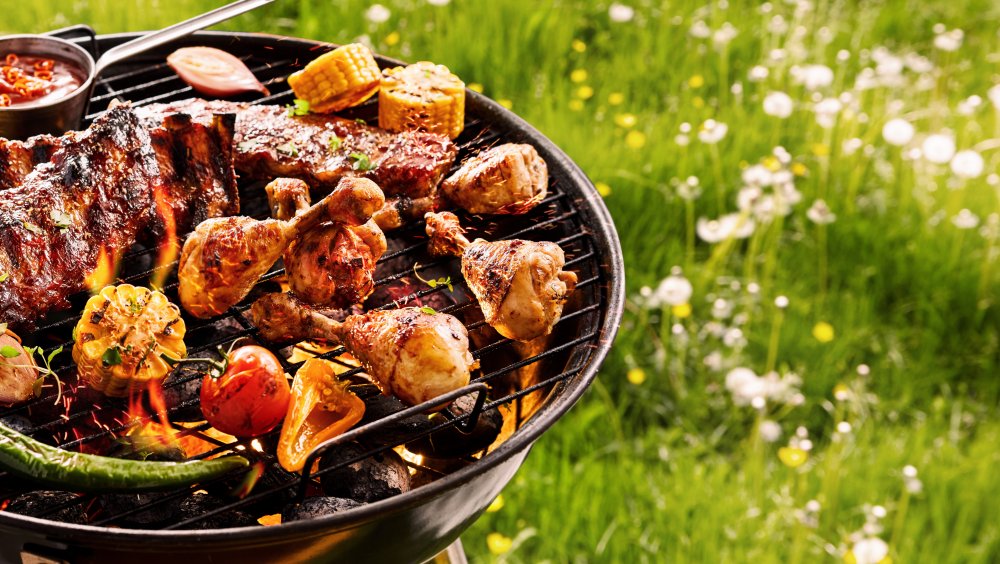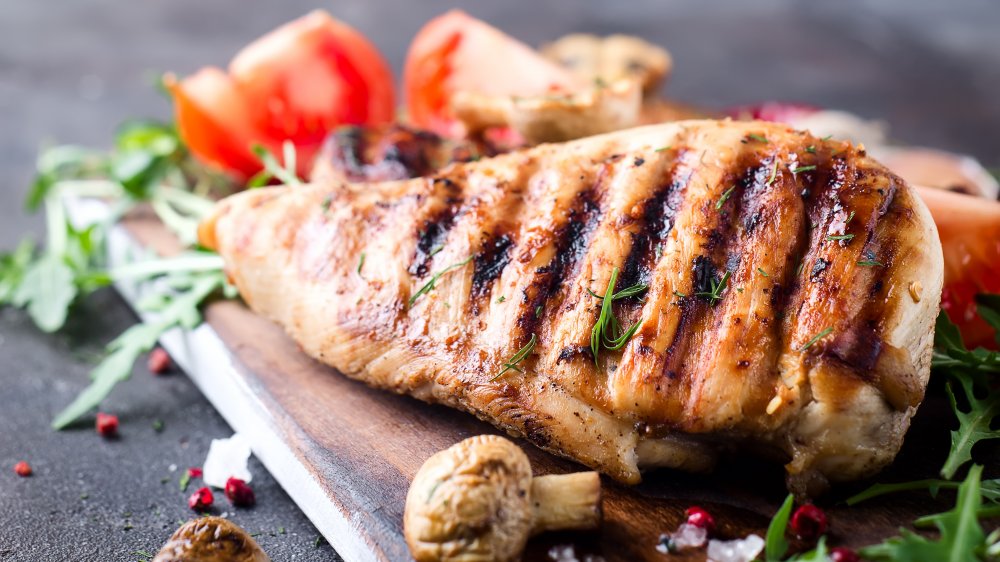Here's The Secret For A Perfect Chicken Marinade
Although chicken is a popular dish due to its high protein content and low fat content (especially if the chicken is skinless) it can be tough to keep the meat itself flavorful and moist (via National Chicken Council). One way to combat both of those problems (and kill two birds with one stone) is by using a marinade.
Many wet marinades use some sort of acid. Whether it's a citrus juice or lactic acid found in milk or yogurt, or red wine which contains tannic acid, acids are used because they break down the proteins in the meat, causing them to become softer and more tender (via Food Network). However, the time that an acid-based marinade takes can vary. Typically, the more acidic the marinade is, the shorter the marinating time. If you overdo it and leave your meat in the marinade for too long, it can work too well and turn the meat mushy and can affect its taste as well. It may take a few tries and a little tweaking to come up with the best possible marinade recipe and how long it's used, given how many variables there are.
Alternatives to a wet marinade
If you're worried about overly marinating your meat with acid, you can also employ the use of a dry marinade, which tends not to use any sort of acid and instead relies on spices to flavor the chicken. Popular dry rubs include Jamaican jerk chicken and Cajun spices. While these types of rubs can be used for a longer period of time, it's advised not to go over a 24-hour period (via Food NDTV).
To ensure that the marinade seeps in as far as possible, poke the chicken with a fork or a knife to allow an access point for the marinade to enter the chicken rather than just coating the outside (via Cooks Illustrated).
You can also add the step of physically tenderizing your chicken as well by use of a metal meat mallet. Wrapping it in plastic and giving it a few thwacks with a tenderizer can help to accelerate the process.

